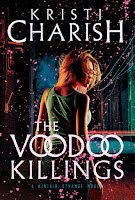Well, this one’s going to be a little awkward. We just said this weekend that we’d talk about dialogue next time at the Writers Coffeehouse. But then we got a request for it here, so… overlap. One way or the other, the second time is going to end up making me look a little lazy, little bit like a hack.
I mean, more than usual.
Ha ha ha, you’re welcome critics. Just tossing that one out there for you.
Anyway…
Dialogue.
I’ve
blabbed on once or thrice about how important dialogue is.
Yeah, I know I’ve said characters are the most important thing, but dialogue’s how we bring those characters to life.
It’s the fuel for the fancy sports car, the foam that hides the gigantic wave, the beautiful full moon that shows us a bloodthirsty werewolf.
You get the idea.
They’re interdependent.
I can’t have good characters without good dialogue, and bad dialogue is almost always going to lead to bad characters.
It’s the circle of fictional life.
If a character doesn’t sound right, if their dialogue is stilted or unnatural, it’s going to keep me—the reader—from believing in them. And if I can’t believe in them, I cant get invested in them or their goals.
Which means I’m not invested in the story and I’m probably going to go listen to music while I
organize my LEGO bricks or something like that.
So here’s a bunch of elements/angles I try to keep in mind and watch out for when I’m writing dialogue. Some things to watch out for, some things to make sure I have. All sorts of stuff. And I’ve talked about a lot of these before, so some of them may sound familiar…
Transcription– Okay, some of you know that I used to be an entertainment journalist and I did
lots and lots of interviews.
One thing that never really struck me until then was that, with very few exceptions, people trip over themselves a lot verbally.
We have false starts.
We repeat phrases.
We trail off.
We make odd noises while we try to think of words.
It’s very human.
However, anyone who’s ever read a strict word-for-word transcription of a conversation (or typed up a lot of them) will tell you it’s awkward, hard to follow, and a lot gets lost without the exact inflection of certain words.
I don’t want to write dialogue in this kind of
ultra-realistic manner.
It’ll drive my readers and editor nuts, plus it
wastes my word count on dozens of unnecessary lines.
While this sort of rambling can work great in actual
spoken dialogue, it’s almost always horrible on the page.
Grammar – As you’ve probably noticed in your day to day life, very few people speak in perfect, grammatically correct English, aside from androids and a few interpretations of Sherlock Holmes.
The rest of us speak differing degrees of colloquial English.
Our verbs don’t always line up with our nouns.
Tenses don’t always match.
Like I just mentioned above, a lot of “spoken” English looks awful on the page.
And this makes some folks choke, because they can’t reconcile the words on the page with the voice in their head.
When I do this I lose that natural aspect of language in favor of the strict rules of grammar, and I end up with a lot of characters speaking in a precise, regulated manner
that just doesn’t flow.
Contractions– This is kind of a loosely-connected, kissing-cousins issue with the grammar one I just mentioned. A lot of people start out writing this way because they’re trying to follow all the rules of spelling and punctuation so they write out every word and every syllable. They want to write correctly!

Again, most of us use contractions in every day speech—scientists, politicians, professors, soldiers, everyone.
It’s in our nature to make things quick and simple.
Without contractions, dialogue just sounds stilted and wooden.
If there’s a reason for someone to speak that way (ESL, robots, Sherlock Holmes, what have you), then by all means do it.
If my characters are regular, native English-speaking mortals, though…
As a bonus, using contractions also drops my word count and page count.
On The Nose—Okay, in simple terms, this is when a character says exactly what they’re thinking
without any subtlety whatsoever.
It’s the difference between “Hey, do you want to come up for a cup of coffee?” and “Would you like to come up and have sexual relations in my living room right now?”
There’s no inference or implications, no innuendoes or layered meanings—no subtlety at all.
And the truth is, we’re always layering meaning into what we say.
Pro tip—I’d guess nine times out of ten, if a character’s talking to themselves out loud, it’s on the nose dialogue. It just works out that way. I’d guess that at least half the time it’s just exposition (see below).
Similarity– People are individuals, and we’ve all got
our own unique way of speaking.
People from
Californiadon’t talk like people from
Maine(I’ve lived almost two decades in each state, I know), people living in the twelfth century don’t talk like people from the fortieth, and uneducated idiots don’t speak like innovative quadruple-doctorate holders.
My characters need to be individuals as well, with their own tics and habits that make them distinct from the people around them. If a reader can’t tell who’s speaking without seeing the dialogue headers… I might need to get back to work.
Let me follow this with a few specifics…
Humor—Here’s a basic fact of human nature.
We make jokes at the worst possible times.
Breakups.
Office reviews.
Funerals.
It’s just the way we’re wired.
The more serious the situation, the more imperative that release valve is for us.
In fact, we kinda get suspicious or uneasy around people who never crack jokes.
Not everyone and not at every moment, but when there’s no joking at all…
it just feels wrong.
Plus, how we joke says something about us. Does someone make non-stop raunchy jokes? Do they have a dry sense of humor? A completely awful sense of humor. Do they have any sense of when it is and isn’t appropriate to tell a certain joke?
Flirting—Similar to humor in that it’s almost universal.
We show affection for one another.
We flirt with friends and
lovers and
potential lovers, sometimes even at extremely inopportune times.
It’s not always serious, it can take many forms, but that little bit of playfulness and innuendo is present in a lot of casual dialogue exchanges.
Flirting is a lot like joking because it’s impossible to flirt with on the nose dialogue. Flirting requires subtlety and implied meanings. Flirting without subtlety sounds a lot more like propositioning, and that gives a very different tone to things. If nobody in my story ever flirts with anyone on any level, there might be something to consider there.
Profanity—another ugly fact of human nature. We make emphatic, near-automatic statements sometimes. We throw out insults. How we swear and respond to things says something about us. Phoebe does not swear like Wakko, and Phoebe doesn’t swear in front of Wakko the same way she swears in front of her mother. Or maybe she does. Either way, that’s telling us something about her and making her more of an individual.
Fun fact—profanity is regional. The way we swear and insult people here is not how they do it there. So this can let me give a little more depth to characters and make them a bit more unique.
Accents– Speaking of regional dialogue…
Writing in accents is a common rookie writer issue.
I made it a bunch of times while I was starting out, and still do it now and then.
There are a handful of pro writers out there who can do truly amazing accented dialogue, yeah, but keep that in mind—only a handful.
The vast majority of the time, writing out accents and odd speech tics will drive readers and editors nuts.
I usually accent by picking out just one or two key words or sentence structures and making these the only words I show it with. Just the bare minimum reminders that the character has an accent. Like most character traits, my readers will fill in the rest.
Weird note—this can become odd with audiobooks, because the narrator will most likely add an accent of some sort to differentiate the character. So the most subtle of written accents can almost become an uncomfortable stereotype once they’re combined. Another reason to think about dialing things back.
Plus with less words, dialogue gets leaner and faster.
Tension builds in the exchanges because the reader isn’t getting slowed down by
ongoing reminders of who’s talking.
Not only that, once I’ve got some of these speech patterns down for my characters, I should need descriptors even less. In my book, Dead Moon, Tessa’s dialogue could almost never get confused with Cali’s or Jake’s or Waghid’s. They’re all distinct, and their speech patterns identify them just as well as a header would.
Names—If I don’t need them around the dialogue, I need them even less
in the dialogue.
Pay attention the next time you’re on the phone with someone.
How often do they use your name?
How often do you use theirs?
Heck, if my friends call my cell phone I know who it is before I even answer—and they know I know—so I usually just say “Hey, what’s up?”
We don’t use our names, and
we definitely don’t use them again and again in the same conversation.
Spoken names can also come across as a bit fake. It’s me acknowledging the audience may be having trouble keeping track, and throwing in a name is the easiest way to deal with it, rather than the best way. Remember, if I’ve got two characters who’ve been introduced, it’s really rare that they’ll need to keep using each other’s names. Especially if they’re the only ones there.
Monologues– Here’s another observation. We don’t talk for long. People rarely speak in long paragraphs or pages. We tend to talk in bursts—two or three sentences at best. There’s always rare exceptions, sure, but for the most part we get our ideas out pretty quickly (if not always efficiently)
When I have big blocks of dialogue, I should really think about breaking them up. Is this person just talking to themselves (see above)? Is nobody there to interrupt them with a counterpoint or question or a random snarky comment? Is my monologue necessary? Does it flow? Is this a time or situation where Yakko should be giving a four paragraph speech?
A good clue when examining a monologue–how many monologues have there already been.
One script I read a while back for a screenwriting contest had half-page dialogue blocks on almost every page.
If I’m on page forty-five and this is my fifth full-page monologue… odds are something needs to be reworked.
I also shouldn’t try to get around this with a “sounding board” character who’s just there to bounce things off.
Talking is communication, which means it has to be a two-way street.
If I’ve got
somebody who serves no purpose in my story except to be the other person in the room while someone thinks out loud… they’re not really serving a purpose.

Cool lines— Our latest ugly truth–everything becomes mundane when there’s no baseline. If everyone on my mercenary team is two hundred pounds of swollen muscle… who’s the big guy? When everyone owns a seven-bedroom mansion, owning a seven-bedroom mansion doesn’t really mean anything. If anybody can hit a bull’s-eye at 100 yards out, then hitting a bull’s-eye isn’t all that impressive, is it?
The same holds for dialogue.
We all want to have a memorable line or three that sticks in the reader’s mind forever.
The thing is,
they’re memorable because they stand out.
They’re rare.
If I try to make
every line a cool line, or even most of them, none of them are going to stand out.
When everything’s turned up to eleven, it’s
all at eleven– it’s monotone.
Exposition—Remember being a kid in school and being bored by textbook lectures or filmstrips that talked to you like you were an idiot? That’s what exposition is like to my readers.
Use
the Ignorant Stranger as a guideline and figure out how much of my dialogue is crossing that line. If any character ever gives an explanation of something that the other characters in the room already should know (or my
readershould know), cut that line. If it’s filled with necessary facts, find a better way to get them across.
“As you know…” – I’ve said this before, but… if you take nothing else from this rant, take this. I need to find every sentence or paragraph in my writing that starts with this phrase or one of it’s halfbreed cousins.
Once I’ve found them, I need to delete them. Gone. Destroyed.
This is probably the clumsiest way
to do exposition there is.
Think about it.
A character saying “As you know”
is openly acknowledging the people they’re talking to already know what’s about to be said.
I’m wasting time, I’m wasting space on the page, and I’m wasting my reader’s patience.
If I’ve got a rock-solid, lean-and-mean manuscript, I might be able to get away with doing this once.
Just once.
As long as I don’t do it my first ten pages or so.
Past that,
I need to get out my editorial knife and start cutting.
What is that, fifteen tips? Here’s one more for a nice, hexadecimal sixteen.
You’ve probably heard someone suggest reading your manuscript out loud to catch errors and see how things flow. Personally, while I think this works great for catching errors, it’s not as good for catching dialogue issues. We wrote these lines, so we know how they’re supposed to sound and what they’re supposed to convey. There’s a chance we’ll be performing what’s not on the page, if that makes sense.
So if you can stand to listen… get someone else to read it out loud. Maybe just a chapter or two. Let a friend or family member who doesn’t know it read it out loud and see what they do with it.
And there you have it. A big pile of tips which should help your dialogue seem a little more real. Fictional-real, anyway. Not real-real.
Next week… I think it may be time to talk about superheroes.
Until then, go write.
 Again, most of us use contractions in every day speech—scientists, politicians, professors, soldiers, everyone. It’s in our nature to make things quick and simple. Without contractions, dialogue just sounds stilted and wooden. If there’s a reason for someone to speak that way (ESL, robots, Sherlock Holmes, what have you), then by all means do it. If my characters are regular, native English-speaking mortals, though…
Again, most of us use contractions in every day speech—scientists, politicians, professors, soldiers, everyone. It’s in our nature to make things quick and simple. Without contractions, dialogue just sounds stilted and wooden. If there’s a reason for someone to speak that way (ESL, robots, Sherlock Holmes, what have you), then by all means do it. If my characters are regular, native English-speaking mortals, though…














